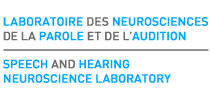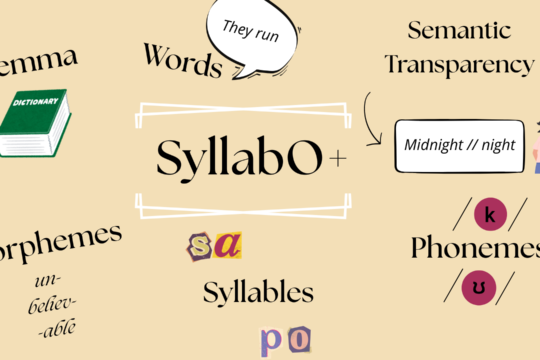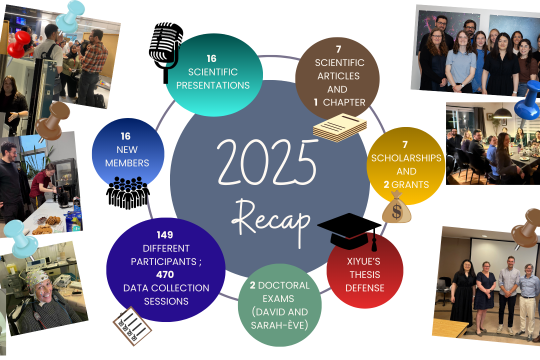Pascale presents our work at the “Neurosciences and Music VIII” congress in Helsinki
It was during the international congress “The Neurosciences and Music VIII” in Helsinki, from June 13 to 16, that Pascale Tremblay, the lab director and full professor at the School of Rehabilitation Sciences at Université Laval, joined other researchers from around the world to present our latest discoveries on plasticity induced by amateur singing. Organized by the Mariani Foundation for Pediatric Neurology and the Centre of Excellence in Music, Mind, Body, and Brain (MMBB) at the University of Helsinki, this event showcased the harmony between science and art by combining scientific conferences with musical interludes.
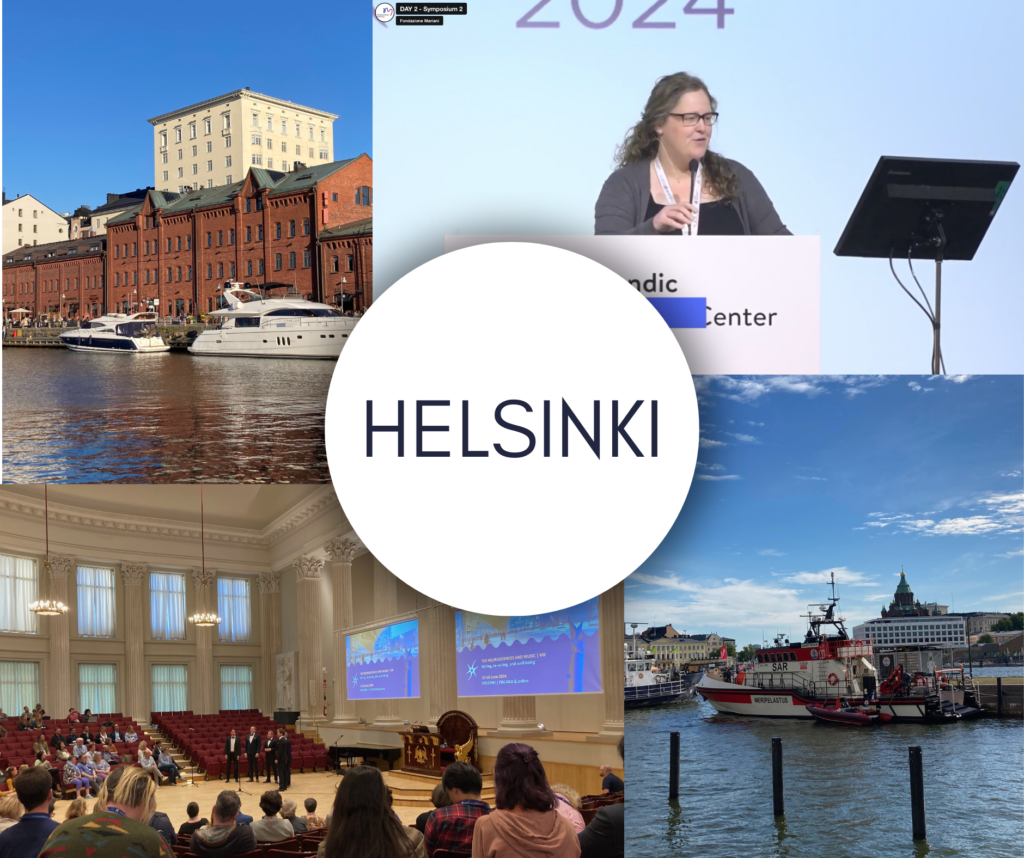
At the conference, Pascale took part in a symposium entitled “Efficacy and neural mechanisms of singing in ageing and neurological rehabilitation” with three colleagues: Aleksi Sihvonen (University of Helsinki, Finland), Jeanette Tamplin (The University of Melbourne, Australia), and Christian Gold (NORCE Norwegian Research Centre, Norway): a fine international team! The work presented at the symposium revealed how singing can modulate brain structures and enhance cognitive abilities in older adults, while shedding light on the underlying neurobiological mechanisms.
The work presented by Pascale, involving hundreds of healthy older adults with and without amateur singing experience, revealed benefits of singing on speech perception in noise, better articulation in difficult contexts, and superior auditory conflict resolution abilities in amateur singers. Analysis of the MRI data revealed significant structural differences in the cortex and arcuate bundle, as well as higher resting connectivity in the default mode network in singers compared to non-singers. These findings suggest that amateur singing could help maintain and even improve certain brain functions in the elderly, by facilitating auditory comprehension, articulation and management of sound information. The presentation was received very positively, underlining the quality and rigour of our work!
The datasets from two projects on this topic are currently being analyzed in the lab, and several articles are being written. This work involves several team members, including Pascale, Alexandre, Xiyue, Lydia, and soon Amélie and Sarah-Ève. This fall will also see the start of a study on learning to sing (a project we have named MELODIC (Measuring Elderly Language Organisation Development through Integrated Choir singing). Stay tuned !
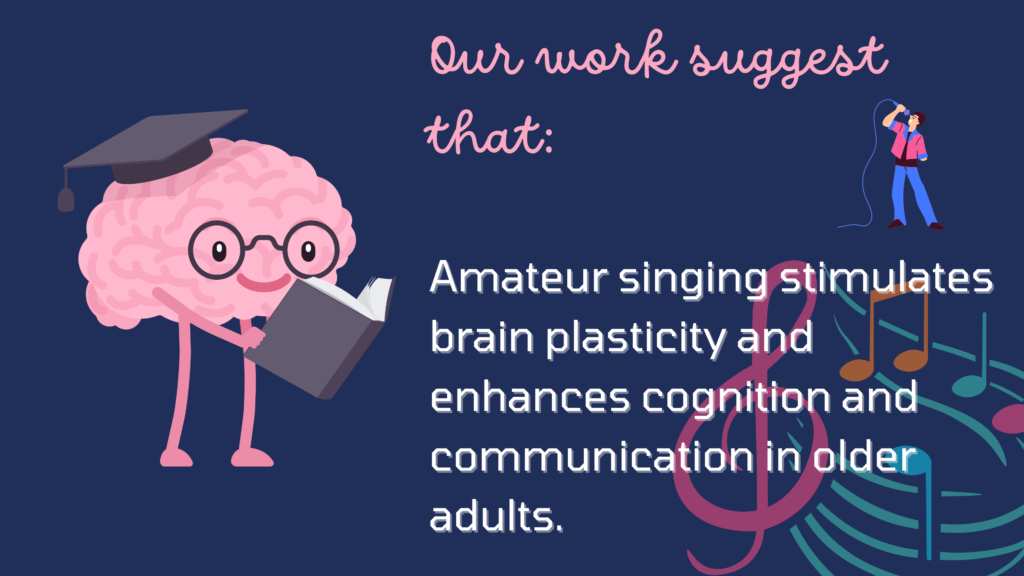
Scientific conferences and events play a crucial role in the careers of researchers and students: they enable them to disseminate their work, exchange ideas and forge valuable collaborations.
Many thanks to the Mariani Foundation for organizing this wonderful event. For further information, visit www.neuromusic.org
To learn more :
- A forest of neurons
- Alexandre’s study presented at the Scientific Day of the Quebec Bio-Imaging Network (QBIN)
- Can musical practice improve listening to conversations in noise?
- Gray and white matter
- Inducing plasticity
- Life of a researcher
- Magnetic resonance imaging (MRI)
- New scientific article about the impact of singing on articulation
- New Scientific Article on the Impact of Singing on Brain Networks
- Pascale holder of a Canada Research Chair
- Scientific Article on the Benefits of Choral Singing
- Scientific publications
